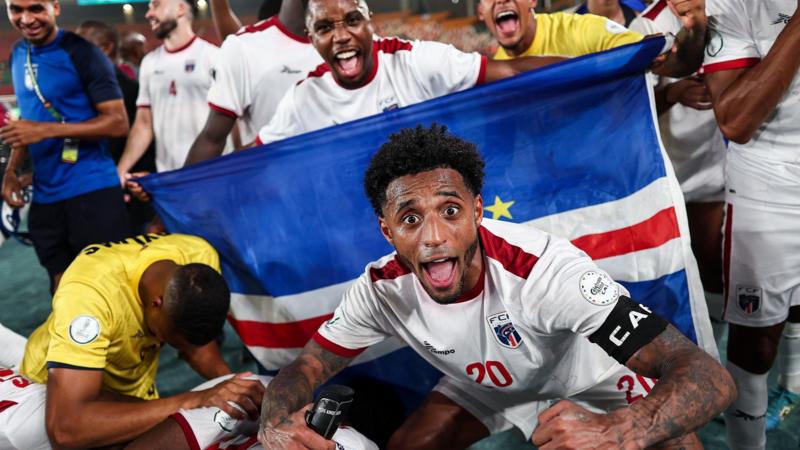Cape Verde Eyes Historic Debut in World Cup Finals



In the pulsating world of international soccer, every qualification cycle brings its share of surprises and heartbreaks. This time, the spotlight has turned to Cape Verde, an archipelago off the northwest coast of Africa, which stands on the brink of securing a historic spot in the FIFA World Cup for the first time.
Cape Verde, with a population of just over half a million, could showcase to the world that size does not define capability, especially in the beautiful game. The national team, nicknamed the Blue Sharks, has shown remarkable prowess and determination in the qualification rounds, drawing attention and earning respect in the international soccer community.
The journey wasn't always smooth for the Blue Sharks. Soccer in Cape Verde has grown exponentially over the past decades but has mostly stayed under the radar compared to African powerhouses like Cameroon and Nigeria. However, through dedicated efforts from local sporting authorities to improve the infrastructure and a diaspora of players who have honed their skills in Europe, Cape Verde has slowly but surely built a team capable of competing at the highest levels.
Their opponent in the crucial upcoming match hasn't been disclosed yet, but the stakes couldn't be higher. If Cape Verde secures a win, they will etch their name on the grand stage of the World Cup, fulfilling not just a national dream but also becoming a beacon of hope and inspiration for smaller nations worldwide.
On the flip side of the story, there's palpable tension for fans of Cameroon and Nigeria, two countries with rich World Cup histories. Both teams find themselves in precarious positions, and the possibility of missing out on the finals is a sobering reminder of how competitive the qualifying rounds in Africa can be.
Cameroon, fondly known as the Indomitable Lions, has appeared in the World Cup seven times, with their best performance in 1990 where they reached the quarter-finals, an unprecedented achievement for an African team at the time. Their flair and resilience in global tournaments have won them many admirers, and their absence would surely be felt.
Nigeria, on the other hand, has participated in the World Cup five times. Known for their bold, attacking style, the Super Eagles are a staple in international soccer, consistently showcasing talent and spirited performances. The thought of a World Cup without Nigeria seems incomplete to many fans who have grown accustomed to their compelling narratives and vibrant team dynamics.
The scenario points to a broader narrative about the unpredictability and evolving landscape of African soccer. While traditional giants might be struggling, newer players on the block like Cape Verde are seizing opportunities to shine. This shift is indicative of the increasing depth of talent and improved competitive spirit across the continent.
As the qualifications draw to a close, emotions run high among the fans and players. For Cape Verde, the dream is palpable, almost within reach. It's not just about participating in the World Cup; it’s about marking their arrival on the world stage, showing that passion, teamwork, and perseverance can overturn even the most established norms.
For Cameroon and Nigeria, the coming games are a test of resilience. As teams laden with history and expectations, how they navigate their challenges could redefine their paths in international soccer. Regardless of the outcomes, the beautiful game promises to unite, inspire and evoke the spirit of competition and camaraderie that is quintessential to soccer.
The road to the FIFA World Cup is always a journey of hope, aspiration, and sometimes, stark realities. As fans around the globe tune in, they will be witnessing not just a series of games, but the unfolding of human dramas that reach beyond the boundaries of the soccer field.